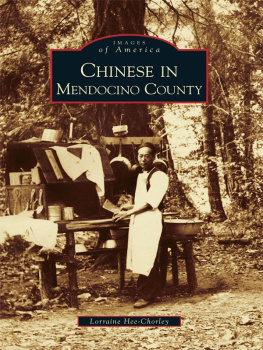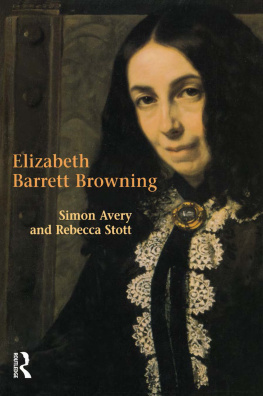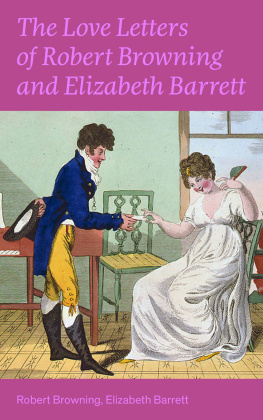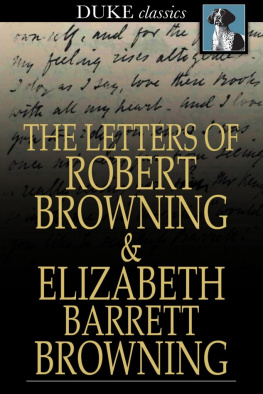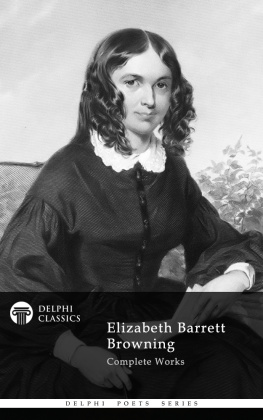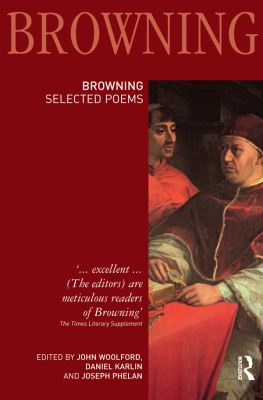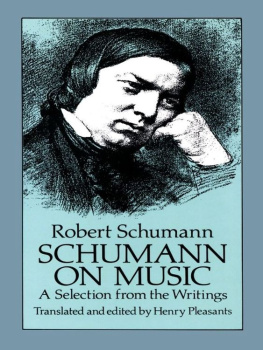First published 1998 by Ashgate Publishing
Reissued 2018 by Routledge
2 Park Square, Milton Park, Abingdon, Oxon, OX14 4RN
711 Third Avenue, New York, NY I 0017, USA
Routledge is an imprint of the Taylor & Francis Group, an informa business
Copyright Robert Terrell Bledsoe, 1998
The author has asserted his moral right under the Copyright, Designs and Patents Act, 1988, to be identified as the author of this work.
All rights reserved. No part of this book may be reprinted or reproduced or utilised in any form or by any electronic, mechanical, or other means, now known or hereafter invented, including photocopying and recording, or in any information storage or retrieval system, without permission in writing from the publishers.
Notice:
Product or corporate names may be trademarks or registered trademarks, and are used only for identification and explanation without intent to infringe.
Publishers Note
The publisher has gone to great lengths to ensure the quality of this reprint but points out that some imperfections in the original copies may be apparent.
Disclaimer
The publisher has made every effort to trace copyright holders and welcomes correspondence from those they have been unable to contact.
A Library of Congress record exists under LC control number: 98023743
ISBN 13: 978-1-138-31740-6 (hbk)
ISBN 13: 978-0-429-45385-4 (ebk)
Henry Fothergill Chorley was a major figure in mid-Victorian journalism. His book reviews, primarily in the Athenum, appeared for more than thirty-five years, and he achieved recognition, too, as a playwright, novelist, and poet. His circle of friends and acquaintances included many of the major literary and musical figures in Victorian England. In his early years he was supported and influenced by Felicia Hemans, Maria Jewsbury, Mary Russell Mitford, and Elizabeth Barrett. Later he formed close and lasting personal attachments to Felix Mendelssohn and Charles Dickens. As a mentor, he worked arduously and successfully in the 1860s to help the beginning careers of Charles Santley, the singer, and Arthur Sullivan, the composer. In addition to reviewing books and musical performances each week from 1834 to his retirement in 1868, he wrote plays, poems, stories, and novels in Victorian abundance: all were almost as neglected then as they are now.
He achieved enduring significance, however, primarily as a musical journalist. As a chronicler of ephemeral musical life in London, especially operatic performances, his productivity was remarkable, his influence great, and his work permanently valuable. His book of musical travels, Music and Manners in France and Germany (1841), provided English readers with descriptions of romantic realms of Meyerbeer and Mendelssohn, and his widely-read book, Thirty Years Musical Recollections (1862), not only brought to life more vividly than any other work of its time a golden age of singing, but also provided a cosmopolitan perspective on the formation of the nineteenth-century operatic repertory in London.
He was fervently engaged in the earnest struggle to define a canon of creative and re-creative musical greatness. He debated passionately the merits of singers such as Guilia Grisi, Mario, Jenny Lind, Pauline Viardot-Garcia, Adelina Patti, Sims Reeves, and Charles Santley. He took sides vehemently when the interests of the conductor Michael Costa appeared to conflict with the interests of managers such as Benjamin Lumley at Her Majestys Theatre or Frederick Gye at Covent Garden. He held forth repeatedly on a question that endlessly fascinated the Victorians: was or was not England a musical nation? He responded favourably to Rossini, Meyerbeer, Gounod, Mendelssohn, Sullivan, and Schubert; he found Verdis music noisy and vulgar; and he was concerned about the degenerate Music of the Future and its creators, Schumann and Wagner.
In his literary reviews Chorley was a strong supporter of numerous women writers Felicia Hemans, Lady Blessington, Elizabeth Barrett, Mary Russell Mitford as well as of Nathaniel Hawthorne and Charles Dickens. His literary journalism was generally competent but seldom inspired.
Susan Holland, indexer for the Athenum project at the City University in London, has identified approximately 2500 book reviews written by Chorley.1 That total, large though it is, understates his contributions to the Athenum, since it counts neither his reviews during the several years for which the marked office copies contain no attributions, nor his most important writing for the journal: the musical columns, Music and the Drama and Musical and Dramatic Gossip, which appeared nearly every week for thirty-five years. These columns supported composers whose reputations were revised radically downward by the generation that succeeded them. In 1894, citing Chorleys views as representing what our fathers or our grandfathers admired fifty years earlier, the Musical Times celebrated the great progress in musical taste made since then, while conceding that his trenchant and forcible style still made for most entertaining reading (1 June 1894: 383). Today the respect Chorley had for Rossini, Meyerbeer, and Mendelssohn no longer seems so quaint, and one need not share his contempt for Verdi, Wagner, and Schumann to find it worth examining.
Like many eminent Victorians, Henry Fothergill Chorley believed that well-bred people did not jeopardize reputations their own or their acquaintances by leaving behind personal and delicate written records. Therefore, it is no surprise to learn from Henry G. Hewlett, who compiled and published parts of Chorleys journals and his unfinished autobiography, that some years before his death Chorley destroyed many letters of too private a nature for preservation, and [returned] others to the friends of the deceased writers (Hewlett, 1: vi). And only a few days before his death, according to his obituary in the Athenum, 24 February 1872, he burned more than 5000 letters (250).
Chorley once wrote approvingly that his friend Sydney Smith was averse to the misuse which could be made, according to the flagrant fashion of our time, of every scrap of written paper, by the literary ghouls who fatten their purses in the guise of biographers (Hewlett, 1: 199).
And yet, he wanted to be understood by posterity. On 22 March 1871, he wrote to Richard Bentley indicating that his autobiography was well underway:
I conceive that the death of Mr. Blackett, released me from my contract with him in regard to my own memoirs.2 I am making daily progress with them, having materials so ample as to have made me determine thus, with respect to them there will be two series the first to close some twenty years ago. The second I shall complete while I can: but it had better be deferred. I think the book will be as full of character & anecdote, as most that have appeared & I will take care that there shall not be a word that can give private pain, to any of those who have known & trusted me. It will make two groups of three volumes each. What are you disposed to offer? I do not wish to divide the work & should like to be paid on handing over the M.S. I could not have believed I had so much to tell, as proves to be the case. 3


